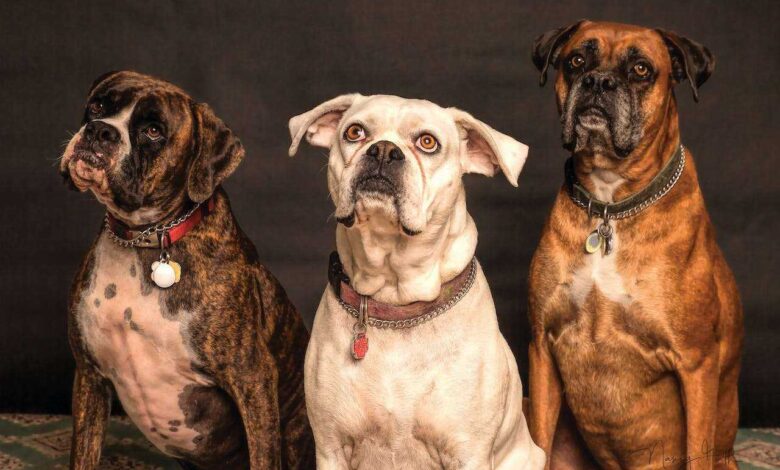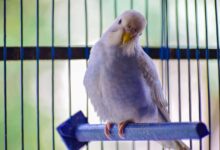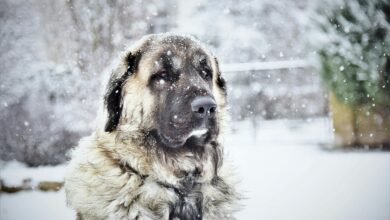Tail-Wagging Bliss: The Top 10 Dog Breeds for Families

Welcome to our comprehensive guide unveiling the top 10 dog breeds perfectly suited for family life. From playful antics to loyal companionship, these breeds bring joy and warmth to every household. In this extensive exploration, we’ll delve into the distinct characteristics, historical backgrounds, care requirements, and training tips for each of these beloved family-friendly breeds. Whether you’re a seasoned dog owner or considering adding a furry friend to your family for the first time, this guide aims to provide invaluable insights to help you make an informed decision and find the perfect match for your family’s lifestyle and preferences.
Labrador Retriever
Energetic, Affectionate, and Versatile
Key Characteristics:
Labrador Retrievers, often simply referred to as Labs, are renowned for their friendly disposition, unwavering loyalty, and boundless energy. Originally bred as versatile hunting companions, Labs have seamlessly transitioned into beloved family pets, known for their gentle demeanor and adaptability to various living environments.
Historical Background:
Originating from Newfoundland, Canada, during the 19th century, Labrador Retrievers were initially bred by fishermen to assist in retrieving nets and fish from the icy waters of the North Atlantic. Their robust build, water-resistant coat, and innate swimming abilities made them well-suited for the task. Recognizing their intelligence, trainability, and affectionate nature, Labs quickly gained popularity beyond their original working roles and became cherished companions in households worldwide.
Care Requirements:
To ensure the health and happiness of your Labrador Retriever, regular exercise is paramount. Labs are highly energetic dogs that thrive on physical activity and mental stimulation. Daily walks, play sessions, and engaging activities such as fetch or agility training are essential to prevent boredom and excess energy.
In addition to exercise, proper nutrition is crucial for maintaining your Lab’s overall well-being. A balanced diet that meets their nutritional needs, along with portion control to prevent obesity, is essential. Regular veterinary check-ups, vaccinations, and preventive care are also vital aspects of responsible Labrador ownership.
Training Tips:
Labs are intelligent and eager to please, making them relatively easy to train. Positive reinforcement techniques, such as praise, treats, and clicker training, work well with Labs. Consistency, patience, and a firm but gentle approach are key to successful training outcomes.
Socialization is another important aspect of Labrador training. Early exposure to various people, animals, environments, and experiences helps prevent behavioral issues and fosters a well-adjusted and confident dog.
Beagle
Curious, Friendly, and Compact
Distinctive Features:
Beagles are renowned for their keen sense of smell, friendly disposition, and endearing expression. With their compact size and sociable nature, Beagles make excellent companions for families of all ages and lifestyles.
Historical Background:
The origins of the Beagle trace back to ancient Greece, where small hounds were utilized for hunting small game such as rabbits. Over the centuries, Beagles evolved into the compact scent hounds we recognize today, prized for their ability to track scents with remarkable precision.
Care Requirements:
Beagles have moderate exercise needs but possess an innate curiosity and desire to explore their surroundings. Daily walks, interactive play sessions, and opportunities for scent-tracking activities satisfy their physical and mental stimulation requirements.
Due to their strong prey drive and tendency to follow their noses, Beagles should always be kept on a leash or within a securely fenced area when outdoors. Beagle-proofing your yard is essential to prevent escapes and ensure their safety.
Training Tips:
Beagles are intelligent but can be independent-minded, requiring patient and consistent training methods. Positive reinforcement techniques, such as rewards-based training and praise, are effective in motivating Beagles to learn and obey commands.
Early socialization is crucial for Beagle puppies to develop into well-adjusted adults. Exposing them to various people, animals, environments, and stimuli helps prevent behavioral issues and fosters confidence and sociability.
Bulldog
Docile, Affectionate, and Calm
Bulldog Highlights:
Bulldogs, with their distinctive appearance and gentle demeanor, have endeared themselves to families as loyal and affectionate companions. Despite their intimidating expression, Bulldogs are famously laid-back and devoted to their human counterparts.
Historical Background:
Originating in England, Bulldogs were originally bred for bull-baiting, a cruel blood sport popular in the 17th and 18th centuries. Their muscular build, tenacity, and courage made them formidable opponents in the bullring. However, with the outlawing of bull-baiting in the 19th century, Bulldogs faced extinction until dedicated breed enthusiasts preserved and selectively bred them for a milder temperament, resulting in the affectionate and docile Bulldogs we know today.
Care Requirements:
Bulldogs are relatively low-energy dogs that require moderate exercise to maintain their health and prevent obesity. Short walks, indoor play sessions, and interactive toys cater to their exercise needs without overexertion.
Due to their brachycephalic (short-nosed) anatomy, Bulldogs are sensitive to heat and humidity and should be kept indoors in air-conditioned environments during hot weather. Additionally, regular cleaning of their facial folds and ears is essential to prevent infections and skin irritations.
Training Tips:
Bulldogs possess a stubborn streak and may exhibit a “what’s in it for me?” attitude during training sessions. Patience, consistency, and positive reinforcement techniques, such as treats and praise, are effective in motivating Bulldogs to cooperate and obey commands.
Early socialization is vital for Bulldogs to develop into well-mannered and confident adults. Exposing them to various people, animals, environments, and stimuli helps prevent behavioral issues and fosters a calm and adaptable temperament.
Boxer
Athletic, Playful, and Loyal
Boxer Attributes:
Boxers are beloved for their playful spirit, boundless energy, and unwavering loyalty to their families. With their athletic build and affectionate nature, Boxers excel as active companions and devoted guardians.
Historical Background:
Originally bred in Germany during the late 19th century, Boxers were developed from a combination of mastiff-type dogs and bulldog ancestors. Initially utilized as versatile working dogs, Boxers performed tasks such as guarding, hunting, and cart pulling. However, their gentle disposition and affectionate demeanor endeared them to families, leading to their transition into cherished household pets.
Care Requirements:
Boxers are high-energy dogs that require ample exercise and mental stimulation to thrive. Daily walks, vigorous play sessions, and engaging activities such as obedience training or agility courses satisfy their physical and mental stimulation needs.
Due to their affectionate nature and strong attachment to their families, Boxers thrive on companionship and may experience separation anxiety if left alone for extended periods. Providing them with plenty of attention, interactive toys, and opportunities for socialization helps alleviate boredom and anxiety.
Training Tips:
Boxers are intelligent and eager to please, making them relatively easy to train. Positive reinforcement techniques, such as treats, praise, and clicker training, are effective in motivating Boxers to learn and obey commands.
Consistency and patience are key when training Boxers, as they may exhibit a playful and exuberant demeanor that requires channeling into appropriate behaviors. Early socialization is essential to prevent behavioral issues and ensure that Boxers develop into well-adjusted and well-mannered adults.
Collie
*Graceful, Intelligent, and Loyal*
Collie Characteristics:
Collies, with their elegant appearance and gentle disposition, epitomize the ideal family companion. Renowned for their intelligence, loyalty, and innate herding instincts, Collies excel as devoted guardians and affectionate companions.
Historical Background:
Originating from Scotland and Northern England, Collies have a rich history as working herding dogs. Bred to assist shepherds in managing livestock, Collies exhibited exceptional intelligence, agility, and trainability. Their keen instincts and unwavering loyalty endeared them to shepherds and earned them a reputation as indispensable working partners.
Care Requirements:
Collies are moderate-energy dogs that require regular exercise and mental stimulation to prevent boredom and maintain their overall well-being. Daily walks, interactive play sessions, and opportunities for herding or obedience training cater to their physical and mental stimulation needs.
Due to their dense double coat, Collies require regular grooming to prevent matting and minimize shedding. Brushing their coat several times a week, along with occasional baths and nail trimming, helps keep their coat healthy and free of tangles.
Training Tips:
Collies are highly intelligent and eager to please, making them adept at learning and mastering commands. Positive reinforcement techniques, such as treats, praise, and clicker training, are effective in motivating Collies to learn and obey commands.
Consistency and patience are essential when training Collies, as they may exhibit a sensitive nature and respond best to gentle guidance and encouragement. Early socialization is crucial to ensure that Collies develop into well-rounded and confident adults.
Poodle
Intelligent, Versatile, and Hypoallergenic
Poodle Attributes:
Poodles, with their intelligence, versatility, and hypoallergenic coat, are highly sought-after family companions. Whether in the show ring, obedience trials, or as loving household pets, Poodles excel in various roles and environments.
Historical Background:
Originally bred in Germany as water retrievers, Poodles were prized for their exceptional swimming abilities and retrieving prowess. Their distinctive appearance, characterized by a curly coat and elegant gait, attracted attention across Europe, leading to their popularity among nobility and royalty. Over time, Poodles transitioned from working roles to become beloved family pets, cherished for their intelligence, trainability, and hypoallergenic qualities.
Care Requirements:
Poodles require regular exercise and mental stimulation to keep them physically and mentally healthy. Daily walks, play sessions, and opportunities for obedience training or agility courses cater to their exercise needs and prevent boredom.
Grooming is a significant aspect of Poodle care due to their curly, non-shedding coat. Regular brushing, professional grooming every 4-6 weeks, and routine maintenance of their ear canals and dental hygiene help keep Poodles looking and feeling their best.
Training Tips:
Poodles are highly intelligent and thrive on mental stimulation, making them eager learners and adept performers in various activities. Positive reinforcement techniques, such as treats, praise, and clicker training, are effective in motivating Poodles to learn and obey commands.
Consistency and patience are key when training Poodles, as they may exhibit a sensitive nature and respond best to gentle guidance and encouragement. Early socialization is crucial to ensure that Poodles develop into well-rounded and well-adjusted adults.
Basset Hound
Charming, Relaxed, and Affectionate
Basset Hound Traits:
Basset Hounds, with their distinctive appearance and laid-back demeanor, capture hearts with their endearing charm and affectionate nature. Renowned for their exceptional sense of smell and gentle disposition, Basset Hounds make delightful additions to family life.
Historical Background:
Originating in France during the 16th century, Basset Hounds were selectively bred from larger hounds to create a shorter-legged breed capable of tracking game at a slower pace. Their name, “Basset,” is derived from the French word “bas,” meaning low, reflecting their characteristic short legs and close-to-the-ground stature. Basset Hounds gained popularity among French nobility and eventually spread to England, where they became favored hunting companions and beloved household pets.
Care Requirements:
Basset Hounds have moderate exercise needs but possess a strong sense of smell and a propensity for tracking scents. Daily walks, scent-tracking activities, and opportunities for mental stimulation cater to their physical and mental well-being.
Due to their long ears and skin folds, Basset Hounds require regular grooming to prevent ear infections and skin irritations. Cleaning their ears, wiping their skin folds, and maintaining proper dental hygiene are essential aspects of Basset Hound care.
Training Tips:
Basset Hounds are intelligent but may exhibit a stubborn streak, requiring patient and consistent training methods. Positive reinforcement techniques, such as treats, praise, and rewards-based training, are effective in motivating Basset Hounds to learn and obey commands.
Early socialization is crucial for Basset Hounds to develop into well-adjusted and confident adults. Exposing them to various people, animals, environments, and stimuli helps prevent behavioral issues and fosters a well-rounded and sociable temperament.
Dachshund
Spunky, Loyal, and Adaptable
Dachshund Features:
Dachshunds, with their distinctive elongated bodies and spirited personalities, captivate admirers with their unique charm and unw
avering loyalty. Renowned for their hunting prowess and affectionate nature, Dachshunds make delightful companions for families seeking a small yet spirited pet.
Historical Background:
Originating in Germany during the 15th century, Dachshunds were selectively bred to hunt burrow-dwelling animals such as badgers, rabbits, and foxes. Their elongated bodies, short legs, and tenacious spirit enabled them to navigate tight spaces and pursue their quarry underground. Dachshunds quickly gained popularity as versatile hunting companions and loyal household pets, known for their courage, intelligence, and devotion to their owners.
Care Requirements:
Dachshunds have moderate exercise needs but possess a spirited nature and love for playtime. Daily walks, interactive play sessions, and opportunities for digging or scent-tracking activities cater to their physical and mental stimulation needs.
Due to their elongated backs and predisposition to spinal issues, Dachshunds should be handled gently and not allowed to jump from heights or engage in activities that strain their backs. Maintaining a healthy weight through proper nutrition and regular exercise is essential for minimizing the risk of spinal problems.
Training Tips:
Dachshunds are intelligent but may exhibit a stubborn streak, requiring patient and consistent training methods. Positive reinforcement techniques, such as treats, praise, and rewards-based training, are effective in motivating Dachshunds to learn and obey commands.
Early socialization is crucial for Dachshund puppies to develop into well-adjusted and confident adults. Exposing them to various people, animals, environments, and stimuli helps prevent behavioral issues and fosters a well-rounded and sociable temperament.
Shetland Sheepdog
Intelligent, Energetic, and Gentle
Shetland Sheepdog Traits:
Shetland Sheepdogs, with their intelligent expression and graceful demeanor, capture hearts with their unwavering loyalty and gentle nature. Renowned for their herding instincts and affectionate disposition, Shetland Sheepdogs make delightful family companions and devoted guardians.
Historical Background:
Originating in the Shetland Islands of Scotland, Shetland Sheepdogs, also known as Shelties, were developed as herding dogs to assist farmers in managing livestock such as sheep and cattle. Their agility, intelligence, and keen herding instincts made them invaluable working partners, capable of maneuvering and controlling livestock with precision. Over time, Shetland Sheepdogs transitioned from their original working roles to become cherished household pets, known for their loyalty, intelligence, and gentle temperament.
Care Requirements:
Shetland Sheepdogs are highly intelligent and energetic dogs that require regular exercise and mental stimulation to thrive. Daily walks, play sessions, and opportunities for obedience training or agility courses cater to their physical and mental stimulation needs.
Due to their dense double coat, Shetland Sheepdogs require regular grooming to prevent matting and minimize shedding. Brushing their coat several times a week, along with occasional baths and nail trimming, helps keep their coat healthy and free of tangles.
Training Tips:
Shetland Sheepdogs are highly intelligent and eager to please, making them adept at learning and mastering commands. Positive reinforcement techniques, such as treats, praise, and clicker training, are effective in motivating Shetland Sheepdogs to learn and obey commands.
Consistency and patience are key when training Shetland Sheepdogs, as they may exhibit a sensitive nature and respond best to gentle guidance and encouragement. Early socialization is crucial to ensure that Shetland Sheepdogs develop into well-rounded and well-adjusted adults.
Conclusion
In conclusion, the top 10 dog breeds for families offer a diverse range of characteristics, histories, and care requirements, each contributing to their suitability as beloved family companions. Whether you’re drawn to the intelligence of a Poodle, the affectionate nature of a Bulldog, or the playful spirit of a Beagle, there’s a perfect match for every family’s lifestyle and preferences.
By understanding the unique traits, historical backgrounds, care needs, and training tips for each of these cherished breeds, you can make an informed decision and welcome a furry friend into your family with confidence. Whether you’re seeking a loyal guardian, a playful companion, or a gentle soul, the love, loyalty, and companionship of a family-friendly dog breed are sure to enrich your life and bring endless joy and warmth to your home.
Frequently Asked Questions (FAQs) – Top 10 Dog Breeds for Families:
Q1: What makes a dog breed suitable for families?
A1: Family-friendly dog breeds are known for their friendly nature, adaptability, and ability to form strong bonds with all family members, including children.
Q2: Why are Labrador Retrievers considered great for families?
A2: Renowned for their friendly temperament, intelligence, and high energy levels, Labrador Retrievers excel in family settings, offering playful and affectionate companionship.
Q3: Are Golden Retrievers good with kids?
A3: Yes, Golden Retrievers are gentle and intelligent, making them excellent companions for children within a family environment.
Q4: Can Beagles adapt to different living spaces?
A4: Absolutely, Beagles’ moderate size and friendly nature enable them to thrive in various living conditions, from apartments to larger homes.
Q5: Why are Bulldogs considered good family pets?
A5: Bulldogs’ gentle disposition and loyalty make them ideal family pets, bringing a sense of calm and affection to every household.
Q6: What makes Boxers ideal for active families?
A6: Boxers’ high energy levels and protective instincts make them perfect companions for active families seeking both playfulness and security.
Q7: Are Poodles good for families with allergies?
A7: Yes, Poodles’ hypoallergenic coats make them suitable for families with allergy concerns, while their intelligence and adaptability cater to various family dynamics.








